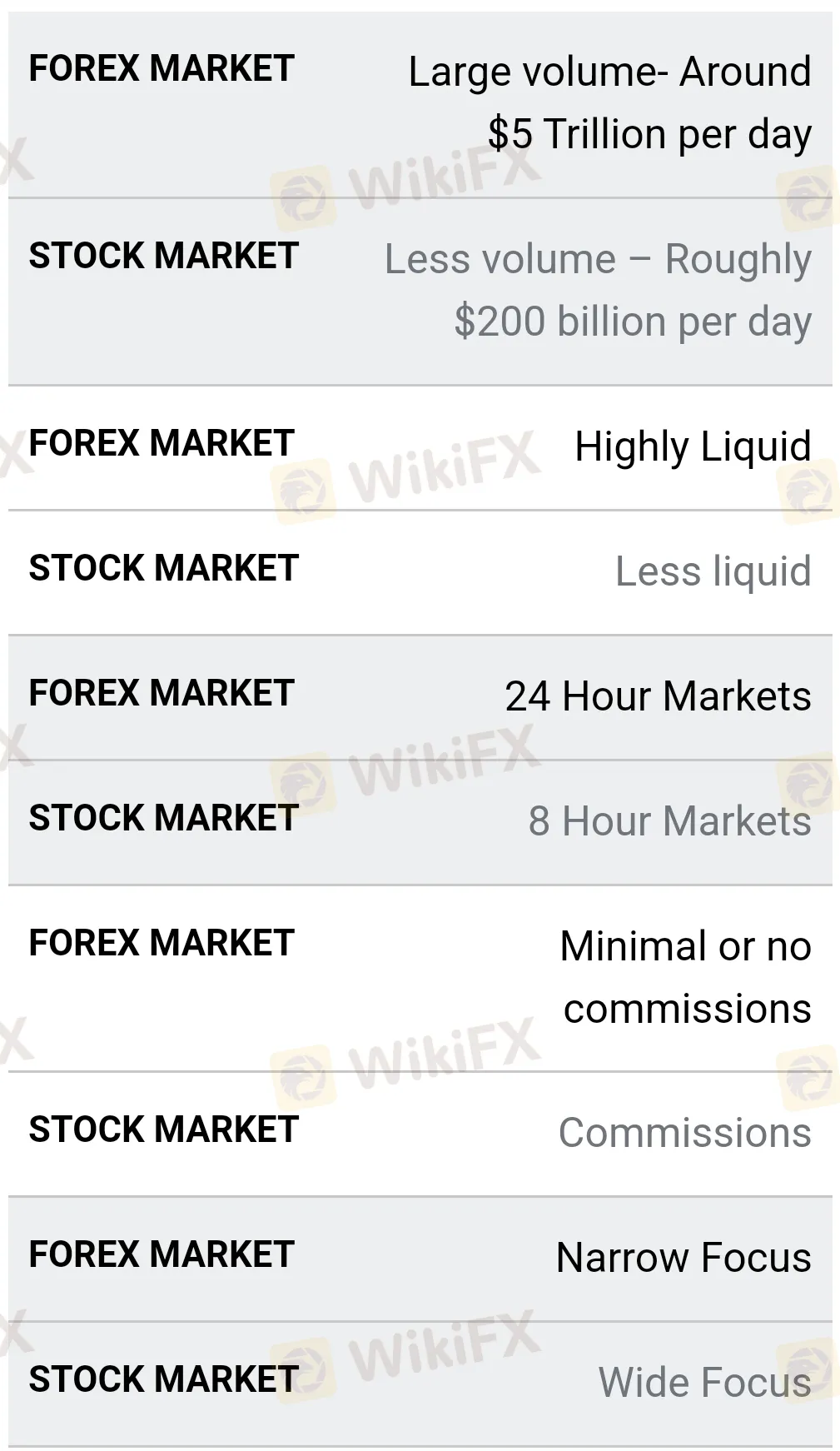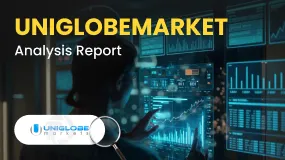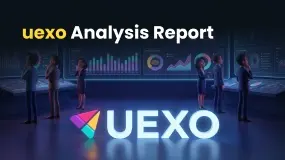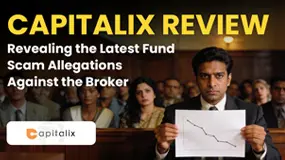Abstract:Traders often compare forex vs stocks to determine which market is better to trade. Despite being interconnected, the forex and stock market are vastly different. The forex market has unique characteristics that set it apart from other markets, and in the eyes of many, also make it far more attractive to trade.
Traders often compare forex vs stocks to determine which market is better to trade. Despite being interconnected, the forex and stock market are vastly different. The forex market has unique characteristics that set it apart from other markets, and in the eyes of many, also make it far more attractive to trade.When choosing to trade forex or stocks, it often comes down to knowing which
trading style suits you best.But knowing the differences and similarities between the stock and forex market also enables traders to make informed trading decisions based on factors such as market conditions, liquidity and volume.
TOP 5 DIFFERENCES BETWEEN FOREX AND STOCKSThe table below summarizes a few key differences between the forex market and the stock market:

Lets take a more in-depth look into how exactly the forex market compares with equities (stocks).
1) Volume
One of the biggest differences between forex and stocks is the sheer size of forex market Forex is estimated to trade around $5 trillion a day, with most trading concentrated on a few major pairs like the EUR/USD, USD/GPY,GPB/USD and AUD/USD The forex market volume dwarfs the dollar volume of all the worlds stock markets combined, which average roughly $200 billion per day.
Having such a large trading volume can bring many advantages to traders. High volume means traders can typically get their orders executed more easily and closer to the prices they want. While all markets are prone to gaps, having more liquidity at each pricing point better equips traders to enter and exit the market.
2) Liquidity
A market that trades in high volume generally has high liquidity. Liquidity leads to tighter spread and lower transaction costsforex typically have extremely forex major pairs low spreads and transactions costs when compared to stocks and this is one of the major advantages of trading the forex market versus trading the stock market. Read more on the defferrance liqudity
3) 24 Hour Marketse
Forex is an over the counter market meaning that it is not transacted over a traditional exchange. Trading is facilitated through the interbank market. This means that trading can go on all around the world during different countries business hours and trading sessions. Therefore, the forex trader has access to trading virtually 24 hours day 5 days a week. Major stock indices on the other hand, trade at different times and are affected by different variables. Visit the major to find out more about trading these markets-including information on trading hours

4) Minimal or no commission
Most forex brokers charge no commission, instead they make their margin on the spread – which is the difference between the buy price and the sell price. When trading equities (stocks) or a futures contract, or a major index like the S&F 500 often traders must pay the spread along with a commission to a broker.
Forex spreads are quite transparent compared to costs of trading other contracts. Below you will see the spread of the EUR/USDhighlighted inside of the executable dealing rates. The spread can be used to calculate the cost for your position size upfront prior to execution.

5) Narrow focus vs wide focus
There are eight major currencies traders can focus on, while in the stock universe there are thousands. With only eight economies to focus on and since forex is traded in pairs, traders will look for diverging and converging trends between the currencies to match up a forex pair to trade. Eight currencies are easier to keep an eye on than thousands of stocks.
The variables that effect the major currencies can be easily monitored using economies rules
SHOULD YOU TRADE FOREX OR STOCKS?Whether you choose to trade forex or stocks depends greatly on your goals and preferred trading style.
The table below shows different types of trading styles, including the pros and cons of each when trading forex and stocks.
If you want to know more information about the reliability of certain
brokers, you can open our website (https://www.WikiFX.com/en). Or you
can download the WikiFX APP for free through this link
(https://www.wikifx.com/en/download.html). Running well in both the
Android system and the IOS system, the WikiFX APP offers you the easiest
and most convenient way to seek the brokers you are curious about.












